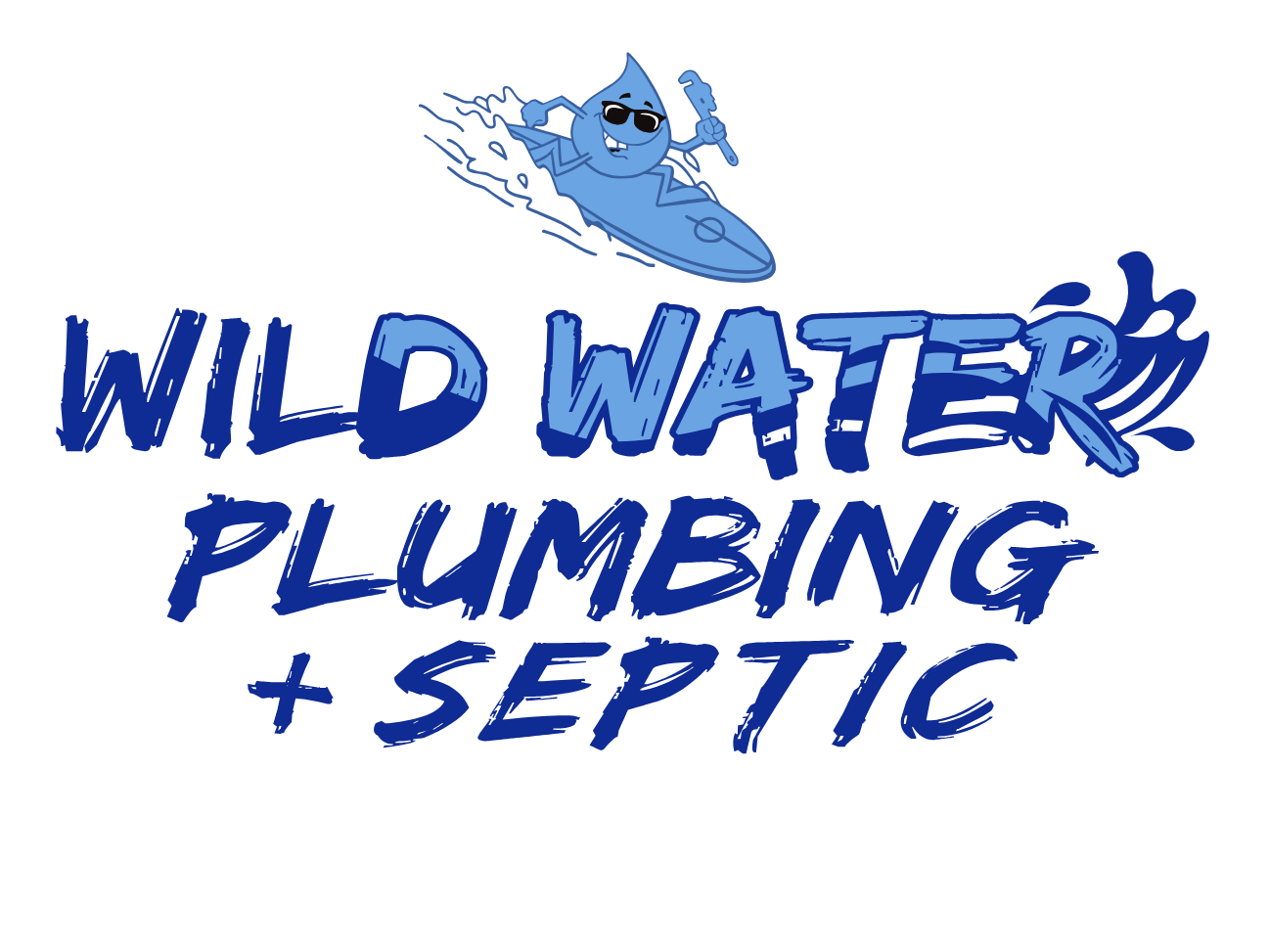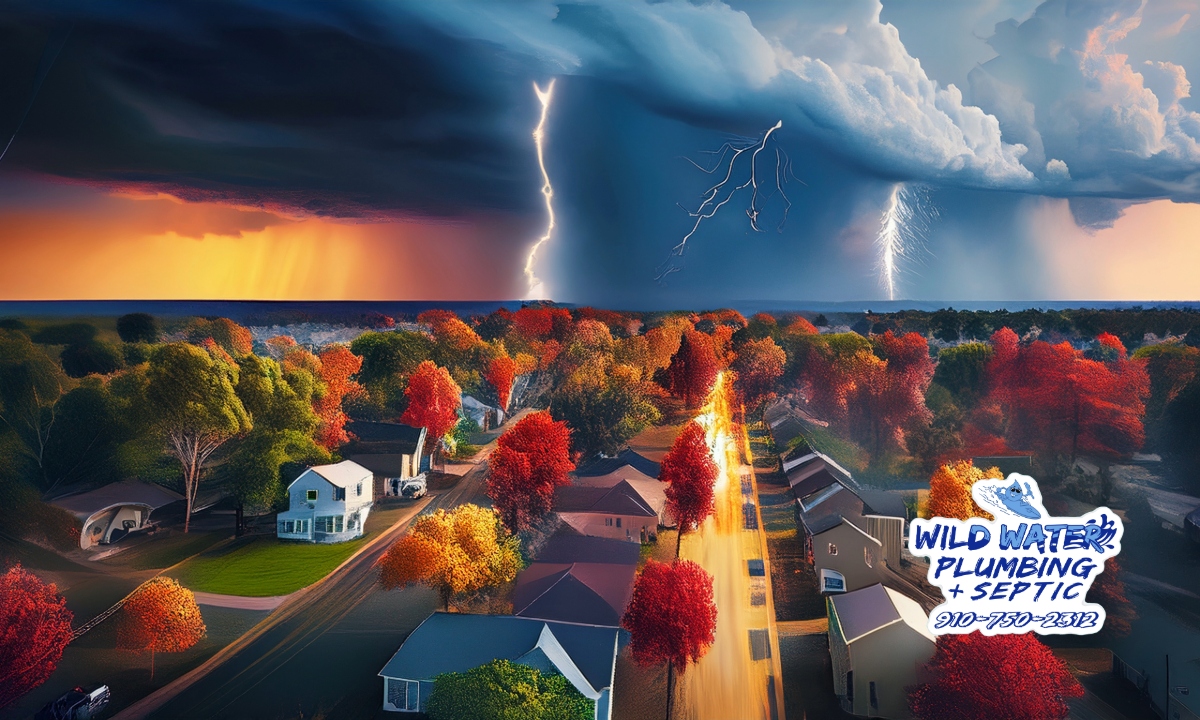By Justin Wilder, Owner of Wild Water Plumbing | Septic Systems
Maple Hill’s Soil Is Beautiful for Farming: But Tough on Septic Systems
Maple Hill is one of the most rural and peaceful parts of Pender County, and it is full of farmland, wide open property lines, and long gravel driveways.
But beneath all that beauty sits one of the biggest challenges for any homeowner relying on a septic system.
Heavy clay soil.
Clay soil holds water instead of letting it drain.
And that is one of the fastest ways to overload a septic tank and destroy a drain field.
If you live anywhere off NC-50, Maple Hill School Road, Back Swamp Road, or in the farmland stretching toward the Onslow County line, your soil conditions are working against your septic system every day.
I have serviced dozens of systems in Maple Hill, and the pattern is always the same: slow drainage, fast tank fill-ups, soggy yard spots, and drain field failure long before the system’s expected lifespan.
Let me explain why this happens and what you can do to prevent expensive repairs.
Clay Soil Slows Down Drainage, and That’s the Core of Maple Hill’s Septic Problems
Every septic system needs soil that can absorb and filter wastewater.
Sandy soils absorb well.
Loamy soils absorb moderately.
But clay soils?
They barely absorb water at all.
Clay soil causes:
- extremely slow wastewater absorption
- standing water over the drain field
- saturated trenches
- bacteria are dying off due to a lack of oxygen
- drain field collapse
- septic tanks are filling far too quickly
Clay doesn’t allow wastewater to move laterally or downward as it should.
Instead, it stays in place, creating a constant backup in the drain field.
This slows the entire system and eventually pushes wastewater right back toward the tank and then into the home.
This is why Maple Hill homeowners tend to see problems earlier than homeowners in coastal towns with sandier soil.
When Your Soil Stays Wet, Your Septic System Can’t Catch Up
Maple Hill often gets long periods of rain.
And once clay soil gets wet, it stays wet for days or weeks.
That means your drain field is constantly sitting in saturated ground.
Saturated drain fields lead to:
- slow drains inside the home
- foul odors in the yard
- bubbling toilets
- sewage surfacing through the grass
- wet patches that never dry out
- frequent backups during rainy months
I’ve seen yards in Maple Hill where one heavy rainstorm knocks out the drain field for days because the soil can’t release the water.
Many Maple Hill Homes Have Older Septic Systems That Struggle With Clay Soil
Maple Hill has many older properties built decades ago, long before modern septic regulations existed.
Many of these homes have systems that were not engineered for heavy clay.
Older septic systems face:
- undersized drain fields
- outdated tank sizing
- brittle or collapsed piping
- clogged trench rock
- baffle failures
- poor soil preparation
When you combine an older system with tough soil, failure can happen fast and unexpectedly.
Clay Soil Reduces Oxygen Flow: Which Kills the Bacteria Your System Depends On
A septic system needs bacteria to break down waste. But bacteria also need oxygen. Clay soil packs tightly, leaving very little air space.
Low oxygen means:
- wastewater is not treated correctly
- solids remain in the tank
- sludge gets pushed into the drain field
- drain field clogs and fails early
This is one of the biggest hidden reasons Maple Hill sees more septic issues than nearby areas like Burgaw or Hampstead.
Yard Slope and Property Layout Make Maple Hill Septic Problems Worse
Maple Hill has many expansive, flat rural lots.
That’s great for farming but not for drainage.
Wastewater has nowhere to flow away from the drain field.
And on sloped properties, wastewater naturally runs downhill, often toward ditches, wooded edges, or low spots where the soil already drains slowly.
This can cause:
- pooling around trenches
- erosion around septic components
- soggy drain fields
- wastewater tracking across the property
If your yard stays mushy long after the rain stops, your drain field is being overwhelmed.
Tank Overload Happens Fast When Drainage Is Slow
In Maple Hill, I often see septic tanks filling two to three times faster than expected.
Not because there’s something wrong with the tank itself, but because the drain field simply isn’t emptying quickly enough.
Signs your tank is overloading:
- needing more frequent pump-outs
- slow drains throughout the home
- backups during laundry or shower use
- odors near the tank lid
- drains gurgling
- the yard above the drain field feels soft or spongy
This is one of the most common calls I get from Maple Hill homeowners.
How Maple Hill Homeowners Can Protect Their Septic Systems
The good news is that even with heavy clay soil, you can maintain a healthy septic system if you take the proper steps.
Increase septic pump-outs
Clay soil slows drainage, so tanks fill faster.
Add an effluent filter
It protects the drain field by catching solids.
Install an EZflow or gravel-free drain field
These systems perform far better in tight soils.
Improve yard drainage
Swales, grading, French drains, and soil rework make a huge difference.
Consider a larger septic tank
A bigger tank gives more buffering time.
Raise the drain field (mounded system)
Ideal when groundwater or clay soil is limiting.
Schedule annual inspections
Clay-heavy properties need more attention.
Maple Hill’s Soil Is Tough on Septic Systems: But You Don’t Have to Face It Alone
If you live in Maple Hill, your septic system is working harder than the average home in eastern North Carolina.
Heavy clay soil, slow drainage, and older systems can quickly lead to backups and expensive failures.
If your septic system is struggling or your yard stays constantly wet, I’m here to help.
I’ll diagnose the problem, protect your system, and keep your Maple Hill property safe from long-term septic damage.
Stay safe and prepared, Jacksonville.
– Justin Wilder, Owner
📞 Call or text me directly at (910) 750-2312 to schedule your storm check today.
Wild Water Plumbing + Septic — Local, Veteran-Owned, and Always Ready.
—


